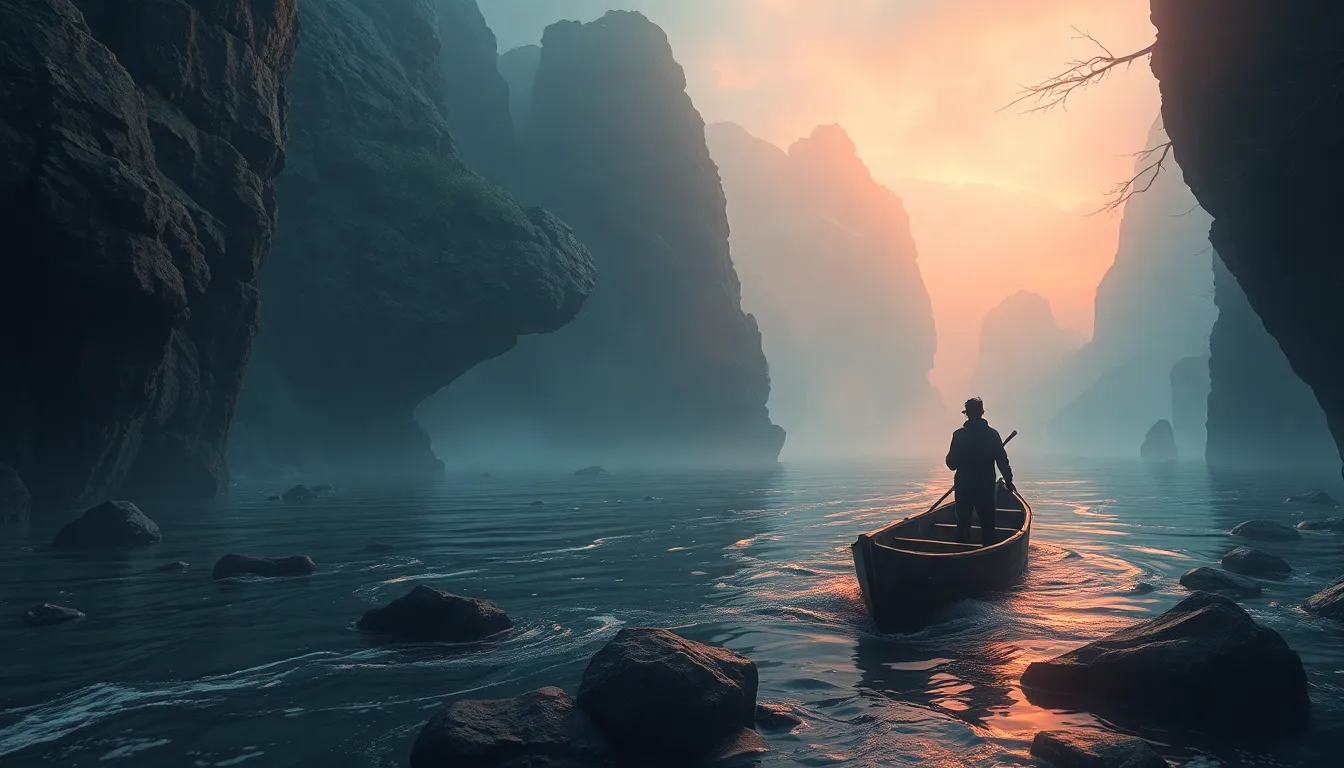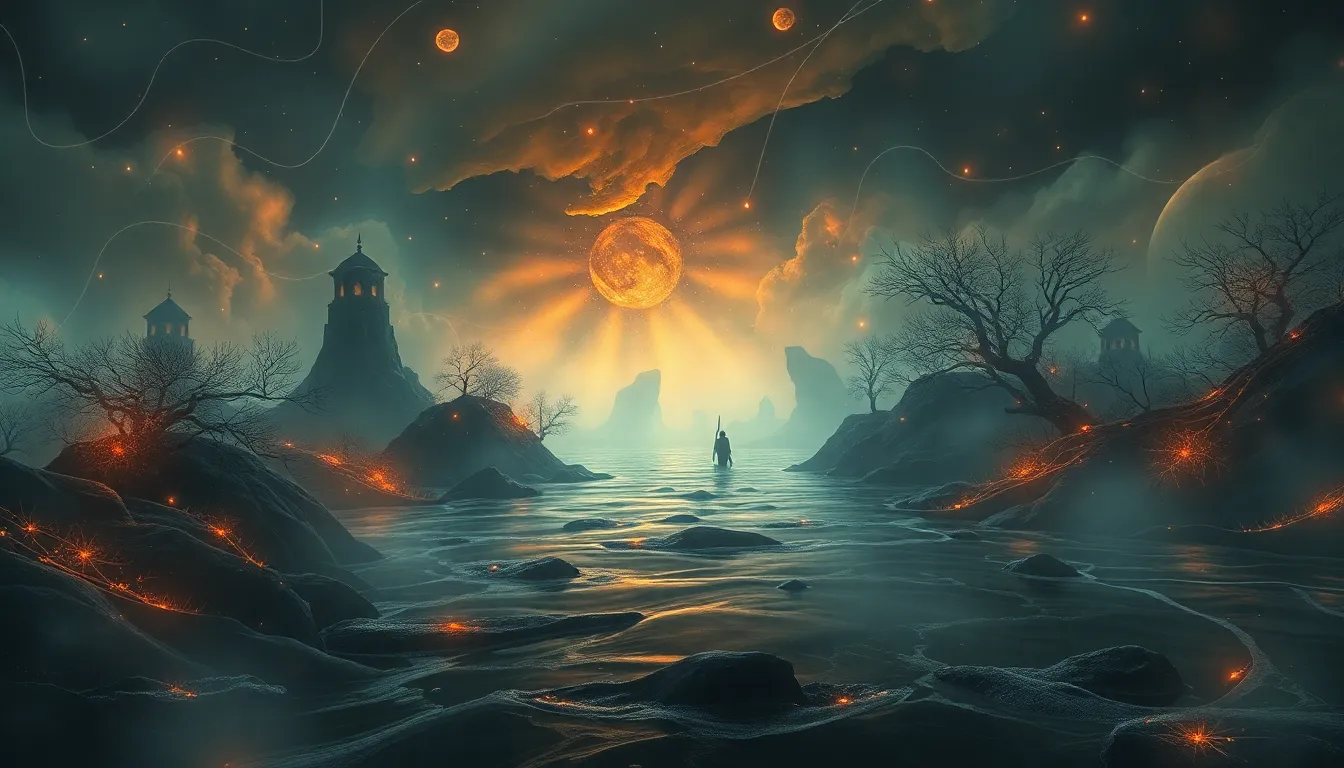The River of Time Travel: Myths That Bend Reality
I. Introduction to Time Travel Myths
Time travel has captivated the human imagination for centuries, serving as a bridge between the realms of myth and reality. It is defined as the concept of moving between different points in time, akin to traversing through space. This idea has profound significance in various cultures, offering insights into our understanding of existence and the universe.
Throughout history, mythology has intertwined with the notion of time travel, creating rich narratives that reflect our desires to explore the past and future. Myths often embody the hopes and fears of societies, providing a lens through which we can examine our beliefs about time, fate, and the human experience.
The purpose of this article is to delve into the myths that shape our understanding of time travel, exploring how these narratives influence our perceptions of reality and the implications they hold for our lives.
II. Historical Context: Ancient Civilizations and Time Travel
Time travel concepts can be traced back to ancient mythologies across the globe. For instance:
- Greek Mythology: The story of Chronos, the personification of time, suggests a cyclical understanding of time.
- Egyptian Mythology: The concept of Ma’at emphasizes the balance of time and the afterlife, hinting at a belief in revisiting past lives.
- Hindu Mythology: The idea of cyclical time (yugas) allows for the possibility of reliving past ages.
Folklore and storytelling in these cultures often reflect the fluidity of time. Tales of gods and heroes frequently involve journeys that transcend temporal boundaries, illustrating the cultural implications of time travel. These narratives shaped societal beliefs, allowing communities to grapple with the complexities of existence and the unknown.
III. The Science Behind Time Travel Myths
The intersection of theoretical physics and time travel myths has sparked fascinating discussions among scientists and scholars. Concepts such as:
- Relativity: Einstein’s theory suggests that time is relative, leading to the possibility of time dilation.
- Wormholes: Hypothetical passages through spacetime that could allow for shortcuts between time periods.
These scientific theories not only inspire myths but also give them a semblance of plausibility. Real-life experiments, such as those involving atomic clocks on high-speed jets, have demonstrated time dilation, thereby creating parallels with mythological narratives that explore time’s fluidity.
IV. Iconic Time Travel Myths and Legends
Several iconic time travel myths have left a lasting impact on culture:
- The Legend of King Arthur: The quest for the Time Stone symbolizes the quest for knowledge and mastery over time.
- The Time Traveler: H.G. Wells’ character in “The Time Machine” represents the human desire to escape the present and explore alternate futures.
- Urashima Taro: A tale from Japanese folklore where a fisherman visits an underwater kingdom and experiences years of time distortion upon his return.
These stories emphasize humanity’s longing to understand time’s mysteries and the consequences of such journeys.
V. Modern Interpretations of Time Travel in Literature and Film
Contemporary works have reinterpreted traditional time travel myths, bringing them to new audiences:
- “Back to the Future”: This film explores the consequences of altering the past and the butterfly effect.
- “Doctor Who”: A series that reimagines time travel as an adventure, emphasizing moral dilemmas and the complexities of time.
These narratives not only entertain but also challenge our understanding of time, altering traditional myths and integrating modern themes. The impact of media on public perception of time travel is profound, shaping our collective imagination and sparking discussions about its possibilities.
VI. Philosophical Implications of Time Travel Myths
Time travel narratives often raise profound philosophical questions:
- Fate vs. Free Will: Many stories explore whether individuals can change their destinies or if their paths are predetermined.
- Paradoxes: The grandfather paradox questions the implications of altering past events and their effects on the present.
- Ethical Considerations: Changing the past poses moral dilemmas, challenging the notion of right and wrong.
These philosophical implications encourage audiences to reflect on their beliefs about time, existence, and moral responsibility.
VII. Time Travel in Popular Culture and its Influence
The rise of time travel in video games and interactive media has expanded its influence:
- Video Games: Titles like “Chrono Trigger” and “The Legend of Zelda: Ocarina of Time” allow players to manipulate time and experience its consequences firsthand.
- Societal Impact: Time travel myths mirror current fears and hopes, addressing issues like climate change and technological advancements.
Fan communities play a vital role in evolving time travel narratives, fostering discussions and creating new interpretations that keep these myths alive.
VIII. Comparative Analysis: Time Travel Across Cultures
A comparative analysis reveals both similarities and differences in time travel myths globally:
- Similarities: Many cultures share themes of journeys to the past and future, reflecting universal human concerns.
- Differences: The perception of time varies; for instance, Western narratives often focus on linear time, while Indigenous stories may emphasize cyclical time.
Case studies, such as Native American myths versus Western narratives, highlight how cultural values shape our perceptions of time and travel.
IX. The Future of Time Travel Myths
Emerging technologies, such as quantum computing and advancements in physics, hold the potential to influence our understanding of time travel concepts. As we continue to explore the boundaries of science, our myths may evolve, reflecting new possibilities and challenges. The intersection of science and mythology will likely inspire future narratives that further blur the lines between reality and imagination, keeping the river of time travel flowing in the collective consciousness.



